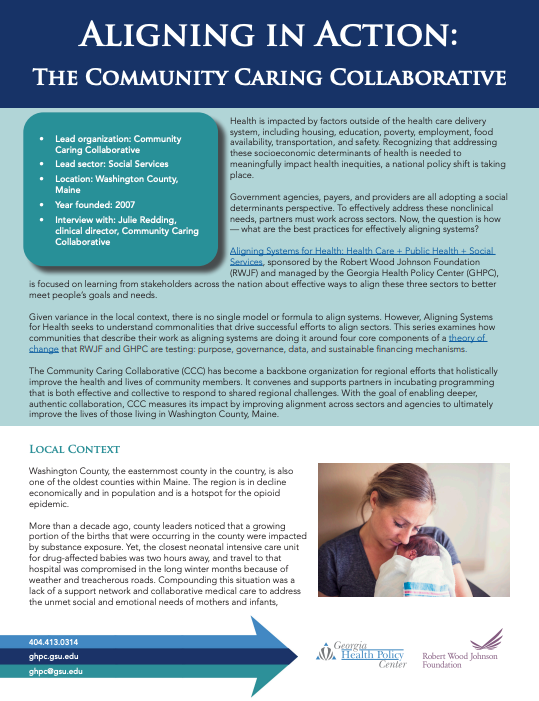
This case study examines the Community Caring Collaborative (CCC) and how it has become a backbone organization for regional efforts that holistically improve the health and lives of community members.
CCC arose out of a sense of urgency related to the opioid crisis’s impact on at-risk infants. CCC convenes and supports partners in incubating programming that is both effective and collective to respond to shared regional challenges. With the goal of enabling deeper, authentic collaboration, CCC measures its impact by improving alignment across sectors and agencies to ultimately improve the lives of those living in Washington County, Maine.
The case study explores how communities that describe their work as aligning systems are doing it around four core components of a theory of change that the Robert Wood Johnson Foundation and Georgia Health Policy Center are testing: purpose, governance, data, and sustainable financing mechanisms.
Several of the CCC’s collaboratively incubated programs have been identified by the state of Maine as having potential for statewide replication for their strong early childhood, health, and family economic stability results.

 Back to Resources
Back to Resources